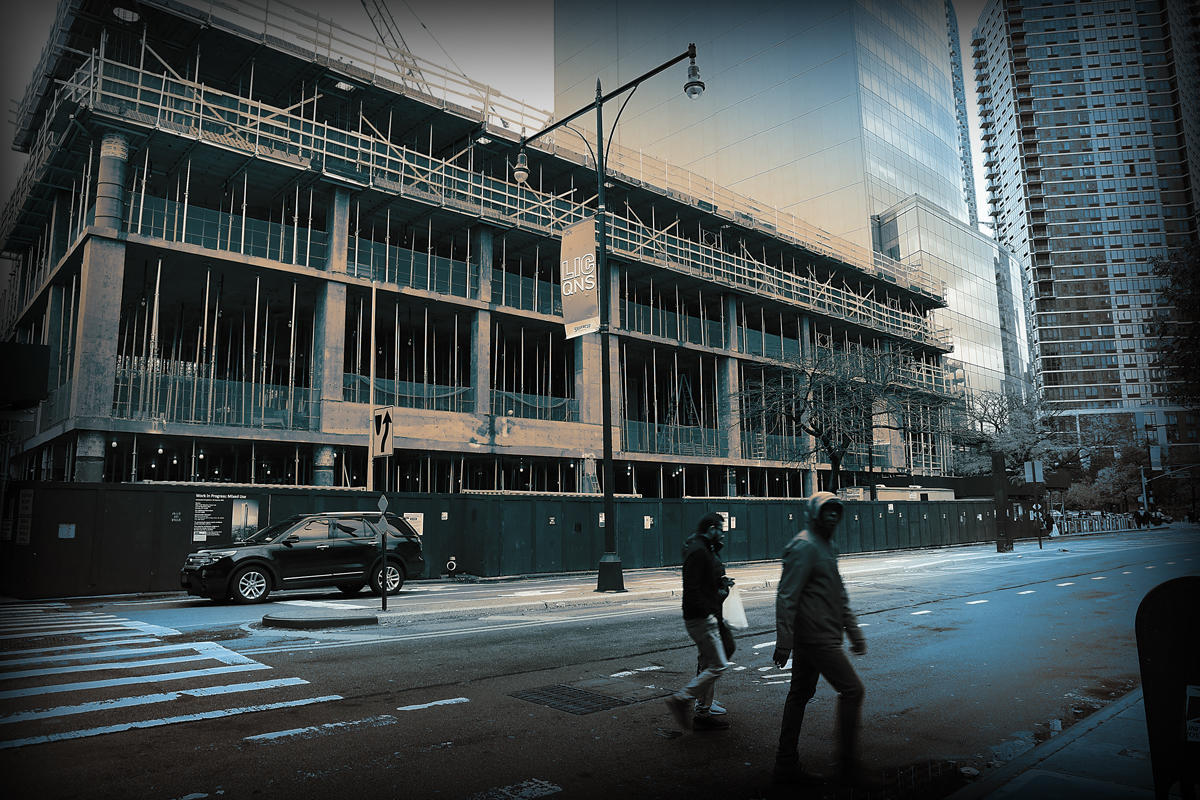Trending
“Amazon will be missed”: LIC’s resi market mania will cool with tech giant’s departure
The pace of the sales market will revert to pre-HQ2 levels, brokers say

In mid-November, condo units suddenly began to sell sight-unseen. Lines for open houses stretched around the block. Amazon’s announcement that it would create a massive campus on the shores of the East River sparked a buying frenzy in Long Island City, transforming a buyer’s market into a seller’s market overnight as sellers seized the chance to hike up prices and developers eyed new projects.
“We are thrilled that the rest of the world is discovering what we have long known to be true,” Eric Benaim, CEO of brokerage Modern Spaces, gleefully wrote in a newsletter in November. “Long Island City is primed and ready to be at the center of New York City commerce.”
Three months later, citing political disputes, Amazon has backed out, disappointing and angering industry players across the city. While Long Island City, already in the midst of a development boom, will continue on an upward trajectory, it won’t be as fast the transformation Amazon would have ushered in, brokers said. The company’s decision is likely to slow absorption of the flood of condo inventory that’s in the pipeline and may discourage developers who were considering projects in the area.
“Amazon will be missed, and it’s not easy to replicate” said Robert Whalen, Halstead’s director of sales in Long Island City. “The future of the neighborhood is still going to happen — but Amazon could’ve accelerated the process.”
When the deal was announced, Modern Spaces stood the most to gain from buyer interest, with the brokerage accounting for 32 percent of active sales listings that totaled more than $45 million in volume. Other big players in the neighborhood include Halstead, Douglas Elliman and Compass.
Between Aug. 15 and Nov. 14 last year, leading up to the Amazon news, Long Island City saw 34 signed contracts, according to OLR data. From Nov. 15 through Feb. 14 this year, that jumped to 54 contracts.
Halstead and Modern Spaces are currently the top two brokerages with the most units in contract in Long Island City — with 77 listings and 72 listings, respectively — according to data compiled by The Real Deal. The most exposed new development project on the market is Adam America Real Estate’s Galerie, which has 73 listings in contract and 7 active listings. CBSK Ironstate’s Corte has the second highest rate of exposure, with 46 listings in contract and 4 active.
For buyers who went into contract in the last three months, there may be some desire to negotiate a better price, said Jonathan Adelsberg, a partner at law firm Herrick Feinstein. Buyers may feel they overpaid amid the Amazon frenzy and try to strike a deal — and sellers could find that a better option than going back to market to find new takers.
“Will there be certain sellers who say, ‘You’re screwed,’ or will they play ball?” Adelsberg said. “Is this happening in the next 15 minutes? No. But it will impact values in LIC.”
(Source: TRD analysis of StreetEasy listings)
In the five weeks after Amazon’s plans leaked, 18.8 percent of homes for sale in LIC increased their price, according to StreetEasy data. By contrast, in the five weeks prior, no listings saw price increases. At the same time, only 5 listings, or 2.7 percent of active inventory, saw price cuts in the five weeks after Amazon announced it planned to build in Long Island City.
Condo buyers are long-term investors, said Dave Maundrell, Citi Habitats’ executive vice president of new developments for Brooklyn and Queens. And those who bought property in the neighborhood in the last few months were banking on the growth Amazon would bring.
“Without them there, we’re back to where we were six months ago,” he said. “[The market’s] gonna go back down.”
Brokerages with a heavy presence in the neighborhood all decried Amazon’s decision — with many placing the blame on local politicians who staunchly opposed the deal without making greater efforts to negotiate. When reports surfaced last week that Amazon was reconsidering, Modern Spaces’ Benaim, one of the deal’s biggest cheerleaders, sent out a petition, which was signed by nearly 4,000 supporters.
“It’s devastating for New York,” Benaim said. “Not for my business. We were doing fine three months ago and we’ll continue to be fine.”
Benaim said Modern Spaces has been seeking to recruit 30 to 40 more agents to keep up with business and has no intention of changing those plans. In December, The Real Deal’s analysis of Department of Buildings filings found that active multifamily projects in LIC contained 6,566 units, of which 1,250 — 19 percent — were associated with condo plans filed with the state Attorney General’s office.
Still, Benaim conceded that the pace of the market will slow. Absorption of condo inventory will likely take much longer and they’ll have to adjust inflated expectations.
“We’ll have to work like we worked before,” he said. “It’s hard but that’s the work.”
Andrew Barrocas, CEO of brokerage MNS, and Paul Massey, CEO of B6 Real Estate Advisors, echoed that sentiment. New development inventory has skewed toward the higher end of the market, which has broadly seen a slowdown, they said. In the absence of the Amazon boost, those properties will revert back to the status quo and take longer to sell.
“From a condo standpoint, it’ll slow absorption for sure,” Barrocas said. “LIC will achieve the same heights but it will take longer getting there.”
Without Amazon, the spotlight on LIC may be dimmer, but it’s not gone, some brokers said. The tech company’s process put LIC on the map and attracted a new wave of consumers and business, an effect that’s not likely to disappear overnight. The central draws of the neighborhood — including discounted pricing relative to Manhattan and proximity to Midtown — remain. Plus, the rental market has remained steady since it wasn’t directly affected by the Amazon news.
“There was excitement about Long Island City before this Amazon moment, and there will be excitement after today’s news,” said Steven James, president and CEO of Douglas Elliman in New York City.
While the surge of development in the area has been encouraging, Amazon’s walking away may impact enthusiasm for future projects. Amazon’s presence would’ve created a micro-economy by boosting jobs and commercial development in the area, said Oxford Property Group’s Adam Mahfouda. Without that same momentum, developers may look elsewhere.
“The future impact will definitely be more drastic,” he said.
Looking back to three months ago, Stribling’s Patrick Smith is glad he advised clients that Amazon’s plan was not a done deal. As interest spiked, Smith said he told clients to invest in the neighborhood for broader reasons.
“Add Amazon, and people felt it would supercharge the growth rate even more,” he said. “Take that out, and you are still left with a good real estate market.”




